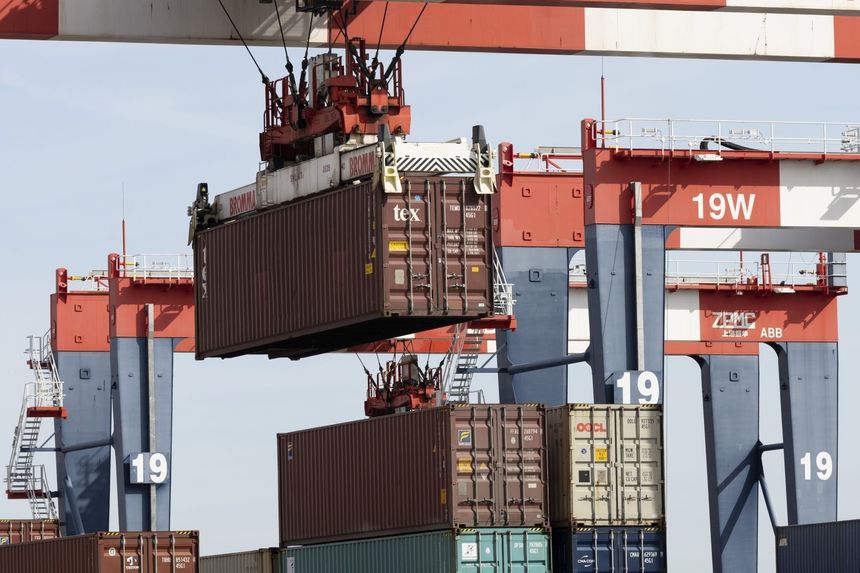
A brief stoppage on the docks at Los Angeles and Long Beach highlights frustrations over contract talks that have stretched to nearly a year
Importers got a taste of port disruptions last week when dockworkers in key positions failed to show up for shifts at the nation’s busiest container port complex at Los Angeles and Long Beach on the evening of April 6 and into the next day, effectively shuttering operations for 24 hours.
The chapter of the International Longshore and Warehouse Union that represents most Los Angeles and Long Beach dockworkers said its members were attending a regularly scheduled meeting Thursday evening and that some workers were absent Friday in observance of Good Friday. The Pacific Maritime Association, which represents port employers, said no such meeting had been scheduled Thursday and that Friday wasn’t a holiday.
Gene Seroka, executive director of the Port of Los Angeles, said Wednesday that last week’s closure had little impact on trade flows because import volumes have been weakening. He said the incident was “a call to action for everyone to hunker down and get this deal done.”
The recent labor actions were the latest and most visible in a series of steps this year that signal growing impatience with negotiations aimed at replacing a multiyear contract that expired last year. The ILWU represents 22,000 dockworkers from California to Washington state, covering ports that collectively handled around 4 million imported containers last year, according to the Pacific Merchant Shipping Association.
People familiar with the private companies that run cargo-handling terminals at the Southern California port complex say executives are increasingly frustrated at what they see as deliberate actions by dockworkers to slow operations. They say dockworkers are showing up late for work and raising spurious safety issues with container-handling equipment that delays its use for days or weeks.
“The frustrations are on a daily basis,” said one person familiar with West Coast terminal operations.
The PMA, in a statement Thursday, said such “illegal work actions have disrupted activities at some of the largest and most active terminals in the United States.”
A representative for the ILWU declined to comment on the negotiations, citing the union’s agreement with employers to not discuss the talks publicly.
The conflicts appear to be growing just as importers are making decisions on how to route goods into the country for the peak shipping season, which begins in a couple of months, when retailers stock up for the fall and the holiday sales period.
Some retailers, stung by massive backups at the ports during the Covid pandemic as well as by the uncertainty of the contract talks, are now looking to divert more imports to ports at Houston, Savannah, Ga., and New York-New Jersey.
Previous contract negotiations between the PMA and the ILWU have been contentious and marked by freight delays that cost individual retailers millions of dollars in increased expenses and lost sales as dockworkers slowed operations and employers locked out workers.
The two sides have generally maintained a united front since the talks began May 10, issuing joint statements to calm fears of cargo delays even as sporadic disruptions flared at ports along the West Coast. The relationship appeared to worsen in March when the PMA and the ILWU traded public barbs about workers refusing to stagger lunch breaks at the Los Angeles and Long Beach ports, a practice that halted most cargo handling during those periods.
Retailers and some shipping industry officials have called on the Biden administration to take a more active role in the talks and to help broker a deal.
Representatives for the U.S. departments of Transportation and Labor said administration officials are in regular contact with both sides, but said the talks are ”a private process.”


